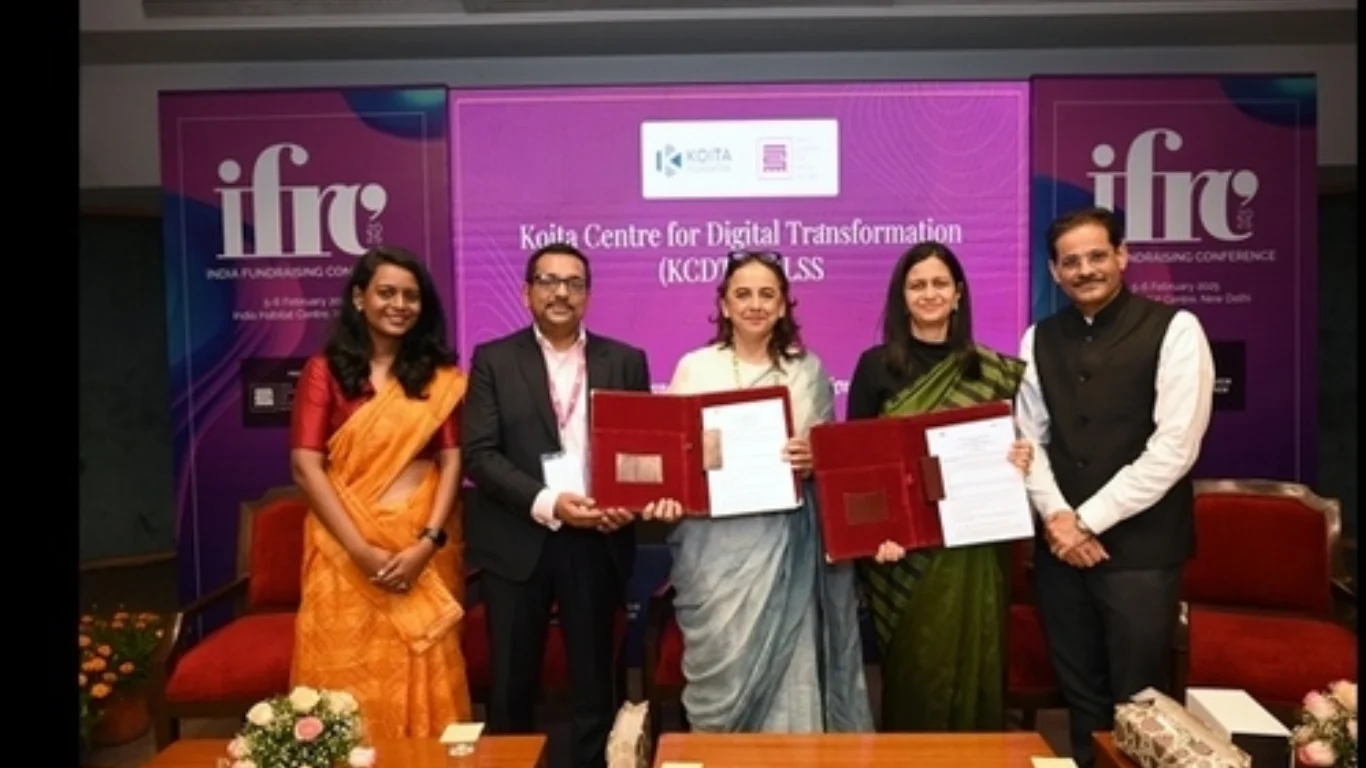
In a sector where transformation is traditionally measured in lives touched and stories shared, a silent revolution is beginning to take shape. The India Leaders for Social Sector (ILSS), in collaboration with the Koita Foundation, has launched the Koita Centre for Digital Transformation (KCDT)—a dedicated initiative aimed at building digital capacity for NGOs across India. This pioneering effort is not just about adopting technology but about reimagining how social change is driven in a tech-enabled world.
“Digital transformation isn’t a tech problem — it’s a leadership challenge,” says Rekha Koita, Co-Founder and Director of the Koita Foundation. “Without strategic clarity at the top, 70 percent of digital efforts fail. That’s why we’ve designed this centre to equip NGO leaders to lead change, not just manage it.”
Bridging the Digital Divide in India’s Social Sector
India is home to over 3 million NGOs, yet most are still entrenched in traditional, paper-based systems. While a few progressive organizations are testing the waters of digital integration, the vast majority remain unaware of how technology can amplify their impact. As digital innovations, particularly AI-powered tools, become more mainstream, the divide between digitally-enabled NGOs and others risks becoming a chasm.
“Digital readiness is now existential,” says Rizwan Koita, Co-Founder of the Koita Foundation and also the Co-founder of CitiusTech, India’s leading health tech company. “While NGOs may not compete for profits, they compete fiercely for visibility, funding, talent, and above all, impact. Without a digital infrastructure, they risk fading into irrelevance.”
KCDT: A New Model of Digital Empowerment
KCDT’s vision rests on three foundational pillars, each designed to address the distinct barriers NGOs face when adopting technology:
Deep Capacity Building
At the heart of KCDT is its flagship Digital Transformation for Social Impact (DTSI) Program—a 10-week blended learning journey designed to walk NGO leaders through the entire digital transformation process. From understanding design thinking to leveraging data and AI, handling cyber security, planning budgets, and selecting the right tech partners, the program is immersive and actionable. More importantly, it’s contextual—reflecting the unique challenges of the Indian nonprofit space.
Contextual Digital Marketplace
Technology is only as useful as it is accessible. KCDT offers a curated digital marketplace that connects NGOs to the tools, vendors, and platforms best suited to their operational needs. It’s a space where decision-making is de-risked, and quality options are readily available.
Tailored Advisory and Mentorship
Recognizing that technology adoption is a journey, not a one-time investment, KCDT also offers ongoing advisory support. NGOs are paired with sector experts who provide mentorship throughout the planning, implementation, and scaling stages. This ensures the transformation is sustainable and aligned with each organization’s mission.
An Ecosystem Approach to Digital Change
What sets KCDT apart is its commitment to being more than just a training program. “This is not about one-off workshops,” Rekha emphasizes. “It’s about creating a living, breathing ecosystem that supports learning, experimentation, and continuous improvement.” NGOs enrolled in KCDT programs engage in peer forums, receive faculty-led instruction, and benefit from real-time guidance as they implement digital strategies.
To further support these efforts, KCDT launched the Digital Toolbook for Social Impact (DiTSI) in December 2024—a dynamic resource hub designed to help NGOs navigate the complexity of digital transformation. DiTSI includes tool directories, budgeting templates, tech partner reviews, and practical roadmaps to help organizations assess where they are and where they want to go.
A Transformational Partnership
The collaboration between ILSS and Koita Foundation marks a powerful step forward in modernizing India’s nonprofit ecosystem. “This partnership is a significant leap in ILSS’s journey to build long-term, sustainable leadership in the social sector,” says Anu Prasad, Founder and CEO of ILSS. “Through KCDT, we are not just teaching NGOs how to use tech — we’re equipping them to lead through it.”
The Koita Foundation has committed multi-year financial and strategic support to KCDT, ensuring that the initiative has the resources needed to scale, adapt, and stay responsive to the sector’s evolving needs.
Looking Forward
As India’s NGOs prepare to tackle 21st-century challenges—from climate resilience and health inequity to education reform and digital literacy—initiatives like KCDT are not just timely, they’re essential. The centre serves as a bridge between mission and method, allowing NGOs to amplify their work with precision, efficiency, and data-driven insight.
Digital transformation in the nonprofit sector isn’t about replacing people with tech — it’s about empowering people with tech. It’s about turning intention into impact, faster and smarter.
In an age where technology drives nearly every facet of development and governance, India’s social sector must not be left behind. With visionaries like ILSS and the Koita Foundation leading the charge, the future for digitally empowered NGOs looks not only promising — it looks transformational.

















